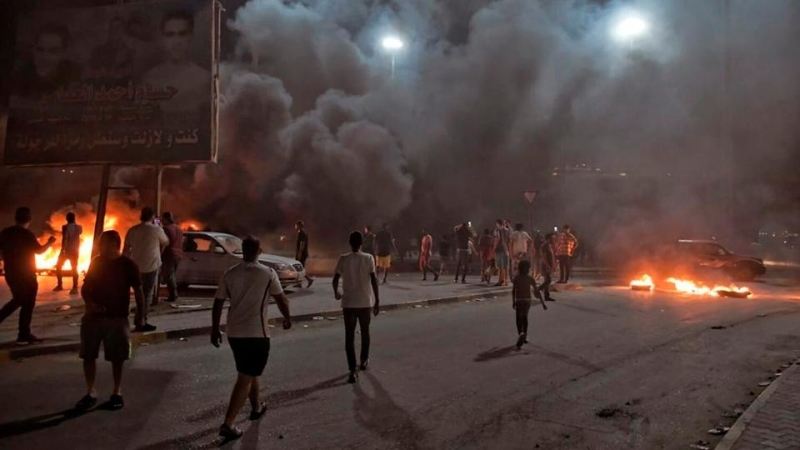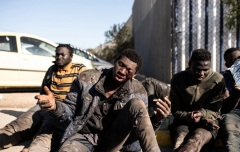Parliament in Libya on fire, oil shipments to Europe suspended
This Friday, protesters broke into and set fire to the Libyan Parliament building in the city of Tobruk, in the east of the country, demanding its dissolution. Protesters reportedly committed acts of vandalism, burning tires near the building and throwing official documents into the flames.
The protesters accused the institution of treason and theft of public money, collects Reuters. At the time of the assault, the building was most likely empty, since Friday is the first day of the weekend in Libya.
A witness to the events, Taher Amaizig, quoted by AP, explained that thousands of Lebanese joined the march to demand the dissolution of the current political powers and the holding of elections. He also claimed that a protester was shot in the legs while security guards tried to prevent the crowd from breaking into the building, although the protesters still achieved their goal.
During the same day, the largest demonstration in years was also organized in the capital, Tripoli, in the west, where hundreds of people gathered to denounce the deterioration of living conditions, criticize the armed factions and the country's political forces, demand the holding of elections as soon as possible and protest the frequent power cuts.
The Lana agency reported that, "in view of the current terrible political conditions and services," the country's youth demand that the presidential and parliamentary elections be speeded up, authorize the Presidential Council to dissolve all political bodies, declare a state of emergency, resolve the electricity crisis and achieve the expulsion of mercenaries and all foreign forces from the east, west and south of Libya, among other conditions.
During the marches, protesters chanted slogans such as "We are fed up! The nation wants to overthrow governments! We want electricity!" and "No to the militias. We want the Police and the Army."
The protests also took place this Friday in Benghazi, Al Baydha and Misrata, as well as in other smaller cities, which were attended by dozens of citizens.
What is happening in Libya?
Unrest gripped Libya a day after representatives of rival national authorities, one based in the country's east and the other in the west, failed to reach an agreement at UN-brokered talks in Geneva on a constitutional framework for national elections.
The country has been plagued by internal conflict since the death of Muammar Gaddafi in 2011, an event that led to the rise of rival governments. The eastern-based administration is supported by military commander Khalifa Hifter, while the UN-backed administration is based in the capital Tripoli.
After the presidential and parliamentary elections failed to be held on December 24, the eastern parliament decided that the mandate of Abdul Hamid Dbeibah's National Unity Government had expired and appointed Fathi Bashagha to replace him on February 10.
However, Dbeibah refuses to give up power, considering that only his cabinet has the authority to prepare the elections. The politician insists that he would hand over power only to a legally elected government. Society, for its part, is not only unhappy about the political crisis, but also about the shortage of electricity and the increase in fuel and bread prices.

Comments to this:





